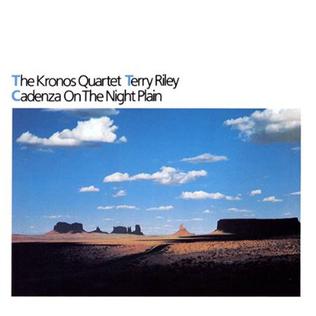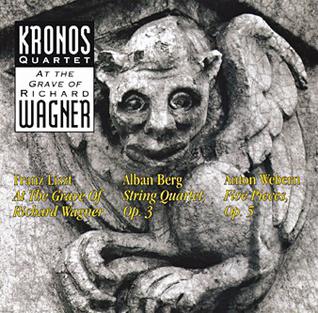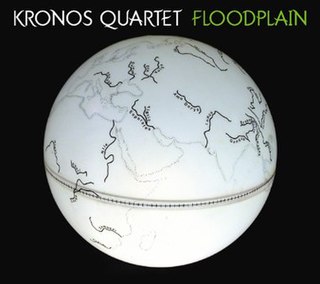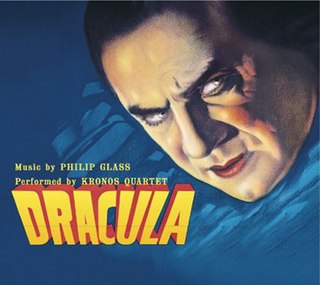
Henryk Mikołaj Górecki was a Polish composer of contemporary classical music. According to critic Alex Ross, no recent classical composer has had as much commercial success as Górecki. He became a leading figure of the Polish avant-garde during the post-Stalin cultural thaw. His Anton Webern-influenced serialist works of the 1950s and 1960s were characterized by adherence to dissonant modernism and influenced by Luigi Nono, Karlheinz Stockhausen, Krzysztof Penderecki and Kazimierz Serocki. He continued in this direction throughout the 1960s, but by the mid-1970s had changed to a less complex sacred minimalist sound, exemplified by the transitional Symphony No. 2 and the Symphony No. 3. This later style developed through several other distinct phases, from such works as his 1979 Beatus Vir, to the 1981 choral hymn Miserere, the 1993 Kleines Requiem für eine Polka and his requiem Good Night.

A string orchestra is an orchestra consisting solely of a string section made up of the bowed strings used in Western Classical music. The instruments of such an orchestra are most often the following: the violin, which is divided into first and second violin players, the viola, the cello, and usually, but not always, the double bass.

The Kronos Quartet is an American string quartet based in San Francisco. It has been in existence with a rotating membership of musicians for almost 50 years. The quartet covers a very broad range of musical genres, including contemporary classical music. More than 900 works have been written for it.

The Symphony No. 3, Op. 36, also known as the Symphony of Sorrowful Songs, is a symphony in three movements composed by Henryk Górecki in Katowice, Poland, between October and December 1976. The work is indicative of the transition between Górecki's earlier dissonant style and his later more tonal style and "represented a stylistic breakthrough: austerely plaintive, emotionally direct and steeped in medieval modes". It was premièred on 4 April 1977, at the Royan International Festival, with Stefania Woytowicz as soprano and Ernest Bour as conductor.

The Fountain: Music from the Motion Picture is the soundtrack album to the 2006 film The Fountain directed by Darren Aronofsky. Released on November 27, 2006, through Nonesuch Records, the album is a collaboration between contemporary classical composer and frequent Aronofsky collaborator Clint Mansell, classical string quartet the Kronos Quartet, and post-rock band Mogwai. The score received mixed reviews from critics and was nominated for several awards.

The discography of the Kronos Quartet includes 43 studio albums, two compilations, five soundtracks, and 29 contributions to other artists' records. The Kronos Quartet plays classical, pop, rock, jazz, folk, world and contemporary classical music and was founded in 1973 by violinist David Harrington. Since 1978, they are based in San Francisco, California. Since 1985, the quartet's music has been released on Nonesuch Records.

Kronos Quartet Performs Alfred Schnittke: The Complete String Quartets is a studio album by the Kronos Quartet. The double CD contains all four of Russian composer Alfred Schnittke's "startling" string quartets. String Quartet No.3 was recorded and released in 1988; the other three were recorded between 1994 and 1996 and released in 1998.

Kronos Quartet Plays Sigur Rós is a studio album by the Kronos Quartet, containing two "audience favorites," "Flugufrelsarinn" and "The Star-Spangled Banner". The album is available only as a digital download.

Terry Riley: Cadenza on the Night Plain is a studio album by the Kronos Quartet, the first album-length recording of a collaboration between the quartet and American composer Terry Riley.

At the Grave of Richard Wagner is a studio album by the Kronos Quartet, containing works by Alban Berg and Anton Webern, and a brief "romantic elegy" by Franz Liszt.

Henryk Mikolaj Górecki: Already It Is Dusk/"Lerchenmusik" is a studio album by the Kronos Quartet and the London Sinfonietta. The two compositions are by Polish composer Henryk Górecki. The Kronos Quartet play "Already It Is Dusk," which they would reissue on Henryk Górecki: String Quartets Nos. 1 and 2.

Floodplain is a studio album by the Kronos Quartet released in 2009. All twelve compositions were written or arranged for the quartet.

Witold Lutosławski: String Quartet is a studio album by the Kronos Quartet, containing String quartet by Polish Witold Lutosławski composed in 1964 and first performed in 1965. This string quartet is an example of aleatory music, that is, music in which some element of the composition is left to chance, and/or some primary element of a composed work's realization is left to the determination of its performer(s). As Gerald Gold noted in a review of the Kronos album in The New York Times, "the Lutoslawski composition integrates notated music with chance performance."

Henryk Górecki: String Quartets Nos. 1 and 2 is a studio album by the Kronos Quartet, with two compositions by Polish composer Henryk Górecki. The Kronos Quartet had recorded "Already It Is Dusk", his first string quartet, in 1990 and released it on Henryk Mikolaj Górecki: Already It Is Dusk/"Lerchenmusik". The Kronos Quartet recorded and released all three of Górecki's string quartets, the third and last in 2007, on Henryk Górecki: String Quartet No. 3 .

Early Music is a studio album by the Kronos Quartet, containing 21 compositions, many of which were written, arranged, or transcribed for the quartet. The subtitle is from Dowland's Lachrimae, or Seaven Teares of 1604.

Dracula is a soundtrack performed by the Kronos Quartet, with music composed by Philip Glass, for the 1931 film Dracula.
Alexandra du Bois is an American composer, violinist and educator who has received international critical acclaim for her chamber, orchestral and vocal compositions. She currently lives in New York and Vermont.
This is a Nonesuch Records discography, organized by catalog number.

String Quartet No. 1 "Already it is Dusk" Op. 62, is a composition for string quartet by Henryk Górecki. Written in 1988 after a long period of focus on vocal music, it was first performed by the Kronos Quartet on 21 January 1989 at the Walker Art Center in Minneapolis. All three of Górecki's string quartets were written for the Kronos Quartet. It is published by Boosey & Hawkes and PWM Edition.
















